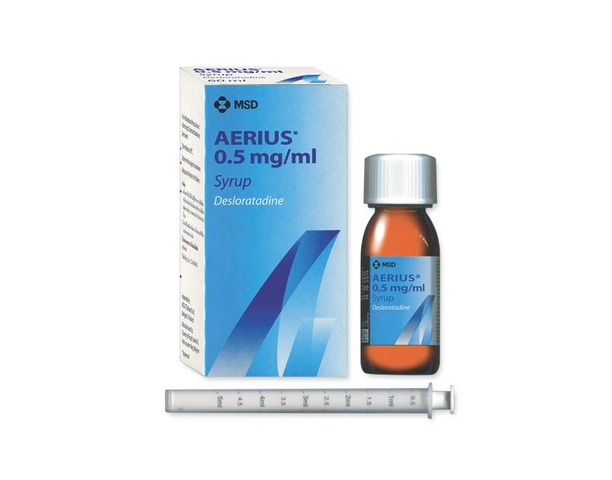Understanding Bloating After a Meal
Bloating after a meal is a common issue that many people face, and it can be quite uncomfortable. It's important to understand what causes this bloating and how our gut microbiome plays a significant role in our overall digestive health. In this article, we'll explore the different factors that contribute to bloating and discuss the importance of maintaining a balanced gut microbiome.
The Role of the Gut Microbiome
Our gut microbiome is made up of trillions of microorganisms, including bacteria, viruses, fungi, and other tiny creatures. These microorganisms help us digest food, produce vitamins, and protect us from harmful pathogens. When our gut microbiome is balanced, it can function effectively and promote overall health. However, when the balance is disrupted, it can lead to various issues, including bloating after a meal.
Causes of Bloating After a Meal
There are several reasons why you might experience bloating after a meal. Some of the most common causes include:
1. Overeating or eating too quickly2. Consuming gas-producing foods
3. Food intolerances or allergies
4. Swallowing air while eating or drinking
5. An imbalance in gut bacteria
Let's examine each of these causes in more detail and discuss how a balanced gut microbiome can help mitigate bloating after a meal.
Overeating and Eating Too Quickly
One of the most common causes of bloating is overeating, or eating too quickly. When we consume large amounts of food in a short period, our stomachs struggle to digest the food properly. This can cause gas to build up in the stomach, leading to bloating and discomfort. Eating slowly and being mindful of portion sizes can help prevent bloating caused by overeating. Additionally, maintaining a balanced gut microbiome can aid in proper digestion and reduce the likelihood of bloating due to overeating.
Gas-Producing Foods
Some foods are notorious for causing gas and bloating. These include beans, lentils, cabbage, Brussels sprouts, onions, and carbonated beverages. Consuming these foods can result in the production of gas within the digestive system, leading to bloating. A balanced gut microbiome can help break down these gas-producing foods more efficiently, reducing the amount of gas produced and minimizing bloating.
Food Intolerances and Allergies
Another common cause of bloating is food intolerances or allergies. When our bodies can't properly digest certain foods, it can lead to gas, bloating, and other digestive issues. Common food intolerances include lactose, gluten, and fructose. A balanced gut microbiome can help improve our ability to digest these problematic foods, reducing the risk of bloating and other digestive symptoms.
Swallowing Air While Eating or Drinking
Swallowing air while eating or drinking can also contribute to bloating. This can happen when we eat or drink too quickly, talk while eating, or consume carbonated beverages. The excess air gets trapped in our stomachs, leading to bloating and discomfort. While a balanced gut microbiome can't prevent us from swallowing air, it can help improve overall digestion, making it easier for our bodies to release trapped air and reduce bloating.
Imbalance in Gut Bacteria
A major cause of bloating after a meal is an imbalance in gut bacteria. When the balance of good and bad bacteria in our gut is disrupted, it can lead to a variety of digestive issues, including bloating. Factors that can contribute to an imbalanced gut microbiome include poor diet, stress, lack of sleep, and antibiotic use. Taking steps to maintain a balanced gut microbiome can help reduce bloating and improve overall digestive health.
How to Maintain a Balanced Gut Microbiome
Now that we understand the importance of a balanced gut microbiome in preventing bloating after a meal, let's discuss some strategies for maintaining a healthy gut. These include:
1. Eating a diverse, fiber-rich diet2. Consuming fermented foods and probiotics
3. Managing stress and getting adequate sleep
4. Avoiding unnecessary antibiotic use
By incorporating these strategies into your daily routine, you can promote a balanced gut microbiome and reduce the likelihood of experiencing bloating after a meal.
Conclusion
In conclusion, bloating after a meal is a common and uncomfortable issue that can be caused by a variety of factors. Maintaining a balanced gut microbiome is crucial for preventing bloating and promoting overall digestive health. By being mindful of portion sizes, avoiding gas-producing foods, addressing food intolerances, and taking steps to maintain a healthy gut microbiome, you can reduce your risk of bloating and enjoy your meals without discomfort.






Naomi Shimberg
May 9, 2023 AT 19:26While many attribute post‑prandial bloating solely to overeating, the underlying microbial dynamics warrant a more nuanced examination. The gut ecosystem operates with a delicate equilibrium, and perturbations can manifest as gas accumulation. Consequently, addressing the microbiome is not merely supplemental but central to mitigation strategies. Moreover, the biochemical pathways involved transcend simple carbohydrate fermentation, implicating host‑microbe signaling cascades.
kenny lastimosa
June 1, 2023 AT 07:26Contemplating the interplay between diet and microbial consortia invites a philosophical reflection on bodily autonomy. When we nourish the interior world with diverse fibers, we invite a chorus of beneficial taxa that, in turn, modulate our physiological experience of fullness and discomfort. The subtle reverberations of this relationship remind us that health is an emergent property rather than a static condition.
Heather ehlschide
June 23, 2023 AT 19:26One practical approach is to introduce a daily serving of fermented foods such as kefir or sauerkraut, which can help repopulate beneficial bacteria without overwhelming the system.
Kajal Gupta
July 16, 2023 AT 07:26Hey folks, think of your gut like a bustling marketplace – the more colorful stalls (fiber‑rich veggies, legumes, whole grains) the richer the trade, and the less chance you’ll feel that uncomfortable balloon feeling after dinner. Let’s swap that soda for sparkling water with a splash of lemon and watch the bloating take a back seat.
Zachary Blackwell
August 7, 2023 AT 19:26They don’t tell you that big pharma is secretly spraying probiotics into the water supply.
prithi mallick
August 30, 2023 AT 07:26Even if we imagine grand conspiracies, the simplest path to a calmer gut often begins with real, everyday habits – like sipping herbal tea after meals and giving your body time to digest, rather than hunting for hidden agendas.
Michaela Dixon
September 21, 2023 AT 19:26Fiber is the unsung hero of digestive comfort. It travels through the gastrointestinal tract largely untouched by human enzymes. When it arrives in the colon, resident bacteria feast on this plant material. Their fermentation process releases short‑chain fatty acids that nourish the lining of the intestine. At the same time, gas is produced as a by‑product. A balanced microbiome knows how to handle this gas efficiently. It converts excess hydrogen into methane or utilizes it in other metabolic pathways. This reduces the pressure that would otherwise cause bloating. Diverse fiber sources, such as oat bran, apple skins, and chickpeas, feed a wider array of microbial species. A mono‑diet of just one fiber type can lead to dominance of a few strains, upsetting the equilibrium. Consistency matters too; introducing fiber gradually allows microbes to adapt without sudden gas spikes. Fermented foods act as a shortcut by supplying live cultures that can immediately assist in breakdown. Probiotic supplements, when chosen wisely, can reinforce this effect during periods of stress or antibiotic use. Hydration supports the movement of fiber through the gut, preventing it from becoming a sticky mass that nests in the colon. Finally, mindful eating – chewing thoroughly and avoiding gulping air – complements these nutritional strategies and rounds out a holistic plan to keep bloating at bay.
Dan Danuts
October 14, 2023 AT 07:26Thanks for the deep dive! Let’s keep the momentum and try adding a handful of nuts to breakfast tomorrow.
Dante Russello
November 5, 2023 AT 18:26In summary, a thriving gut microbiome is built on variety, patience, and consistent care; incorporate fiber‑rich foods, fermented options, adequate hydration, and stress‑reduction techniques, and you will likely notice a reduction in post‑meal bloating; remember that each small adjustment compounds over time, leading to lasting digestive comfort.